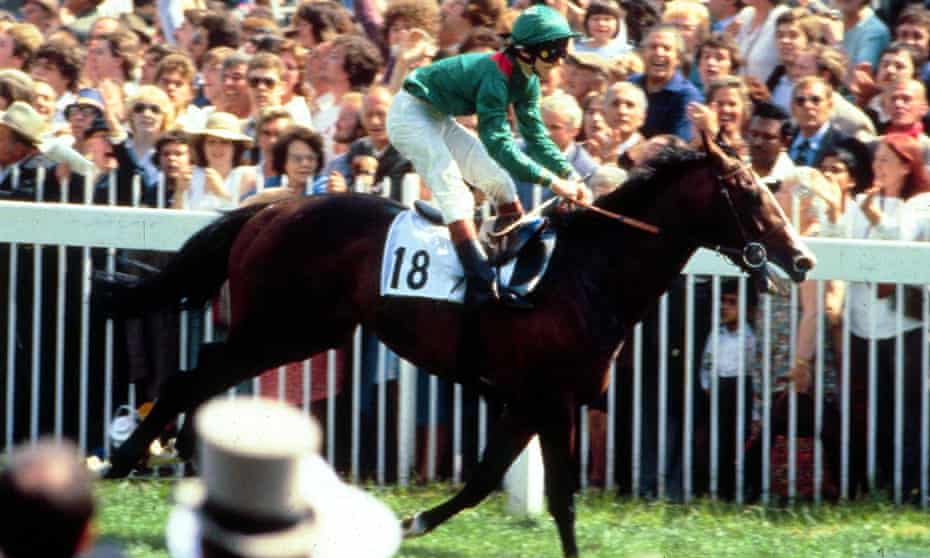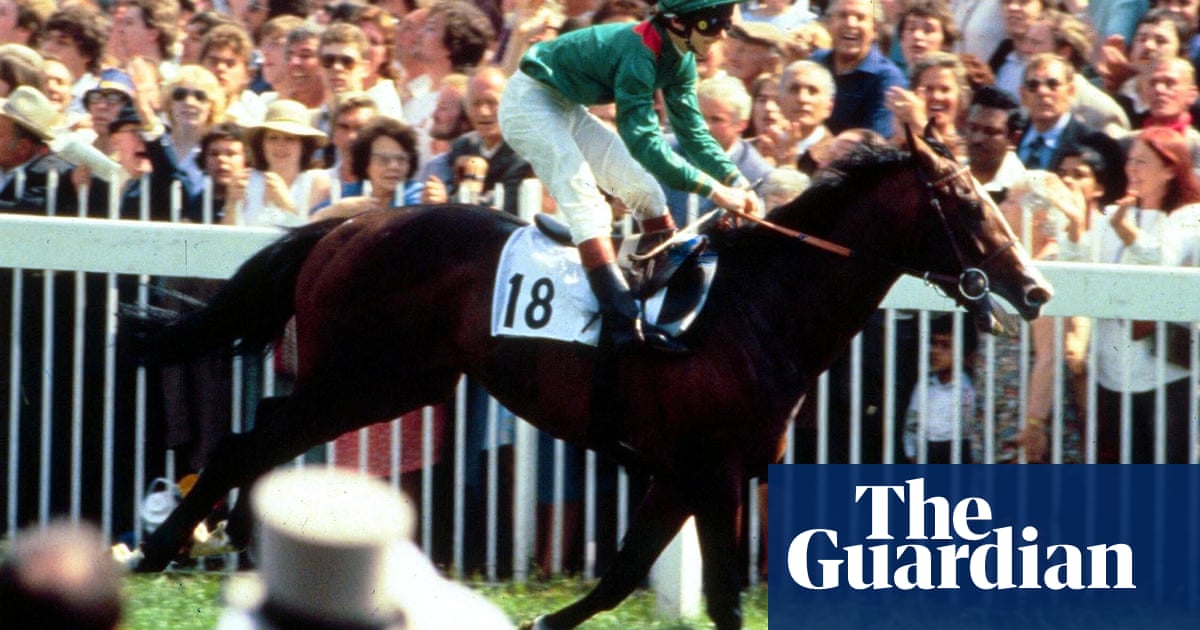Operator seeks changes to Irish lottery after no jackpot win since June
Controversy leads to parliamentary inquiry, calls for ‘must-be-won’ draw similar to UK’s – and Shergar jokes

It has been said that even the dead racehorse Shergar has a better chance of winning Ireland’s national lottery than a member of the public.
For six months the jackpot has yet to be won, prompting calls for an investigation, a reduction in the number of balls to increase the chances of a win and on Wednesday, a parliamentary inquiry.
Now the operators of the Irish national lottery are seeking regulatory approval to end the marathon winnerless rollover period with a “must-be-won draw” to ensure that such a long wait for a jackpot payout cannot be repeated.
In the UK’s national lottery, such a draw takes place if no one matches the six numbers in the previous five draws, then the prize money is shared between all other players who match two or more numbers.
The change in the Irish approach was sparked by a mounting controversy over the lack of a winner for the top prize since June and the intervention of a veteran politician, whose calls for an investigation have caught the public’s imagination.
The changes “seem so remote that punters must be thinking Shergar would have a better chance at winning Squid Game”, said the Fine Gael TD (Irish MP) Bernard Durkan, referring to the racehorse who was kidnapped in 1983 and to the hit Netflix show.
“I’m not saying anything odd has happened, but it’s the longest run in the history of the game so we need a bit of reassurance,” he added.
The office of the national lottery has said the rollover each week was “unprecedented” but pointed out that the jackpot had been capped at €19m (£16.2m) since September and the extra ticket sale receipts were trickling down to the next tier in prizes.
Andrew Algeo, the chief executive of Premier Lotteries Ireland, which runs the operation, said it was “highly unusual” that this jackpot still had no winner.
“Given the tickets purchased since early June, the chances are akin to rolling a die 37 times without the number six arising,” he said.
The regulator Carol Boate was questioned at length by the Oireachtas (Irish legislature) joint committee on finance, public expenditure and reform and Taoiseach.
Asked whether it was the fault of a machine or whether any other lottery had a must-win draw, she told the committee that the draw was determined by a mechanical machine similar to that used in Britain and elsewhere in the world, and explained the UK jackpot rollover system.
“It would be a known risk that this could happen,” Boate said of the six-month rollover of the jackpot in Ireland. She added that he did not know why a must-win draw was never introduced when the game was redesigned in 2015 but the November request was the first she knew of.
When the Irish national lottery launched in 1988 there were 36 balls. This was changed to 39 in 1992, then 42 in 1994, 45 in 2006 and 47 in 2015.
This still compares well to other lotteries including the UK’s which has 59 balls and the EuroMillions lottery in which players choose five balls from a pool of 50 main numbers and two lucky stars from a separate pool of 12 numbers.
Boate’s deputy, Derek Donohoe, said the “unprecedented rollover” of the jackpot was happening while the Irish national lottert was “operating in line with the game rules” and insisted he had identified “no regulatory issues”.
